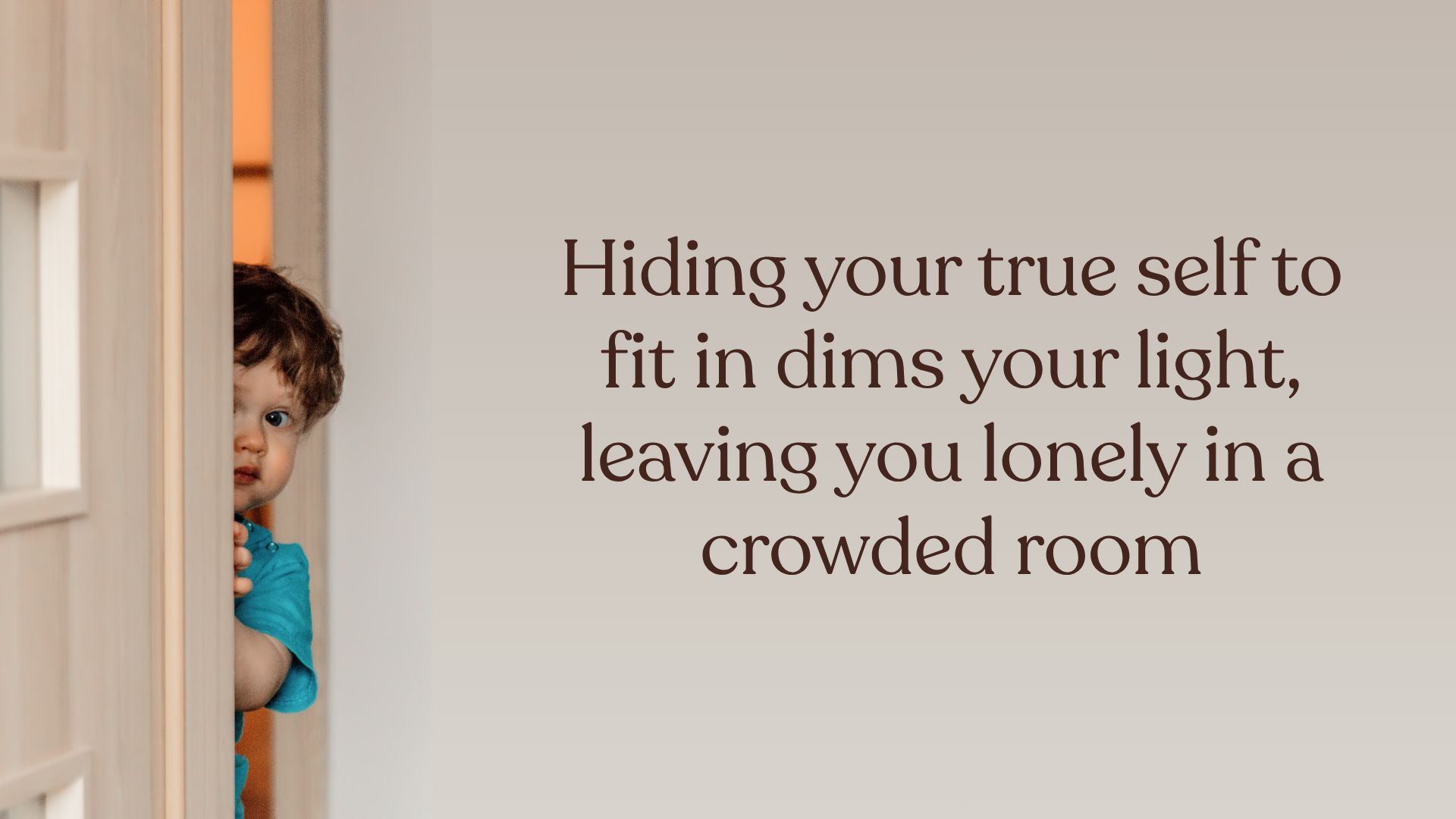Welcome to Wisdom & Sol! If you haven’t subscribed, join our community of 59,705 intelligent, curious folks who want to boost their emotional well-being by subscribing here.
We've all become experts at pretending, and usually without realizing it. Think about it: When you ask a friend, "How are you?" and they reply, "I'm fine,"—but they’re actually stressed about work or frustrated at home—you're both playing a scripted social game.
Your Comfort Zone Keeps You Chained
At this point, you’ve probably mastered having conversations that feel like connection but aren't actually honest or authentic. They typically involve the weather, work drama, series you are binging on Netflix, and weekend plans. Those "safe topics" let us feel social without being vulnerable.

There's something seductive about those types of surface-level interactions. Why? Because they're predictable. You can control the narrative, and you don’t have to make a genuine emotional connection.
It may be manageable, but it’s not meaningful. We're having relationships that give us a dopamine hit but leave us emotionally starved.
Is Your Fear of Being "Too Much" Making You Invisible?
The exhausting part of all of that is the mental energy that gets expended on perfecting those interactions. The mental overhead leaves less energy for forging authentic relationships.
You may be so busy wondering How am I coming across? that you miss the actual interaction. So many people play both actor and director in their lives, leaving no room for vulnerability.
And that is why many of us feel lonely, even when we’re surrounded by others.

What Actually Works (And Why Most Advice Fails)
Most advice on the Internet tells you to “be vulnerable” or “share your feelings,” but that's like telling someone to "just be funnier." It's not actionable. Here's what makes a difference:
Notice when you're self-editing. Pay attention to the moments when you want to deliver an authentic response but choose the safer version instead. You don't have to change it every time, but notice it.
Test small truths. Don't suddenly begin to pour out deep emotional confessions. Instead, try sharing something mildly authentic and see what happens. Rather than telling someone, "I'm fine," you could go with, "I'm feeling scattered today." See how people respond to the real version of you in low-stakes situations.
Call out your own performance. Sometimes, when you catch yourself being fake-polite or overly agreeable, you can say, “Sorry, I'm being weird right now. Let me try that again.” People usually laugh, and it immediately makes the conversation feel more real.
Accept people and their emotions. When someone shares a difficult experience, don’t respond with pity or reinterpret their words—validate their feelings exactly as they express them. For example, if a friend says they feel overwhelmed, saying “I hear how tough this is for you” shows you respect their emotions without judgment.
Help us make this newsletter even better for you! Was this issue useful? What would you be excited to read about next? Reply to this email with your thoughts and suggestions. We read every response!
Want More: Tools to Cultivate Deeper Connection
Along the Same Lines…
We love you,
Mona & The Sol TV Team ❤️
Lastly, some housekeeping…
If you can't find the newsletter, check your spam folder. If it’s there, mark it as “not spam.”
Whitelist our email. Add our email address [email protected] to your contacts listor your Primary inbox in Gmail.


